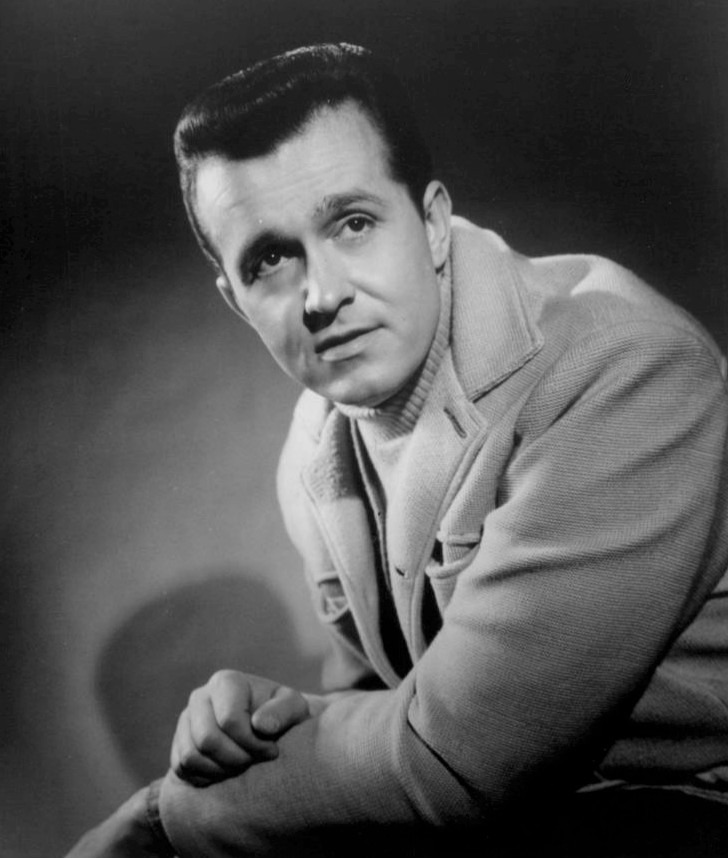Introduction to Bill Anderson
Bill Anderson is a country music singer who was born on November 1, 1937 in Columbia, SC but raised in the Atlanta, GA area. While in college Bill wrote the song, “City Lights”, which was recorded by Ray Price and became a #1 country hit. He moved to Nashville where he signed with Decca Records and had seven #1 Billboard Country Singles, “Mama Sang a Song”, “Still” (also charted at #8 on the Billboard Hot 100), “I Get the Fever”, “For Loving You” (with Jan Howard), “My Life (Throw It Away If I Want To)”, “World of Make Believe”, and “Sometimes” (with Mary Lou Turner). 29 more songs have reached the top ten and Bill has released over 40 studio albums, including his 2011 recording, “The Songwriter.” In 2001 Bill received the ultimate country music honor by being inducted into the Country Music Hall of Fame, he previously was voted into the Nashville Songwriters Hall of Fame. Bill also was a game show host starring in ABC’s “The Better Sex,” and TNT’s “Fandango.” He hosted TNT’s “Opry Backstage” and acted on the soap opera “One Life to Live.” Bill has also written three books, including his autobiography, “Whisperin’ Bill”, and continues recording, hosting and songwriting to this day. Other Bill Anderson Hit Songs: “The Tip of My Fingers,” “I Can’t Wait Any Longer,” “Walk Out Backwards,” “Head to Toe,” “Po’ Folks,” “Liars One, Believers Zero,” “8 x 10,” “Peanuts and Diamonds,” “Five Little Fingers,” “Every Time I Turn the Radio On,” “Me,” “The Corner of My Life,” “Get While the Gettin’s Good,” “If You Can Live With It (I Can Live Without It),” “No One’s Gonna Hurt You Anymore,” “Don’t She Look Good,” “Wild Weekend,” “All the Women in the World,” “Happy State of Mind,” “Quits,” “But You Know I Love You,” “Always Remember,” “Love Is a Sometimes Thing,” “Where Have All Our Heroes Gone” “Old Rugged Cross” and “Wherever She Is”
Meet Bill Anderson
One of the most successful country music artists, Bill Anderson was born James William Anderson born on November 1, 1937 in Columbia, South Carolina. Anderson spent most of his early years in Griffin, Georgia and Decatur, Georgia. He attended the University of Georgia where he studied journalism and earned a degree as well. After graduating, he was soon employed at the Atlanta Constitution. In 1957, Anderson had his first recording on the small label TNT where his first three singles failed to gain popularity.
In 1958, the 19-year-old Anderson was working at WJJC-AM in Commerce, Georgia when country singer Ray Price recorded Anderson’s composition “City Lights.” When it became a number one country chart hit for Price, he decided to move to Nashville, Tennessee and start a career at Decca Records. There, he scored his first hit with “That’s What It’s Like To Be Lonesome,” making at #12 on the country music chart later that year. In 1959, he continued to make country music hits such as “Ninety-Nine” (#13) and “Dead or Alive” (#19). Price had a hit song once again with another Anderson piece “That’s What It’s Like to Be Lonesome” which peaked at #7.
Anderson’s hit recordings in the 1960′ and the 1970’s.
The following decade was filled with musical successes for Anderson and that was also the point when his songs started to make dents on the Billboard Hot 100. In 1961, he joined the Grand Ole Opry, the ultimate dream concert of every country music artist.
Anderson’s biggest hit came in 1962 with “Mama Sang a Song” which became a chart-topper on the country music chart while it made its first appearance on the pop chart at #89. In 1963 Anderson achieved his biggest chart hit with his self-penned song “Still,” which peaked at #8 on the Hot 100, and #1 on the country singles chart. In 1968, he visited the Billboard once again with “Po’ Folks’ Christmas which stalled at #18. He went on to have country top ten hits throughout the 60s music era: “8×10,” “Five Little Fingers,” “Me,” “Three A.M.,” “I Love You Drops,” “I Get the Fever,” “Get While the Gettin’s Good,” “No One’s Gonna Hurt You Anymore,” “Wild Weekend,” “Happy State of Mind,” “My Life (Throw It All Away If I Want to),” and “But You Know I Love You.” His other biggest pop hit, “Po’ Folks,” reached #18 in 1968. For much of the 1960’s, Anderson was actively writing and making country music hits for numerous artists such as Jim Reeves, Faron Young, Brenda Young, Lefty Frizzell, Connie Smith, Jean Shepard, Facts of Life and Tommy Edwards among others.
In the 1970’s Anderson scored hits on the country charts with “Where Have All Our Heroes Gone” (#6, 1970), “Quits” (#3, 1971), “All the Lonely Women in the World” (#5, 1972), “If You Can Live With It” (#2 , 1973), “The Corner of My Life” (#2, 1973), “Sometimes” (#1, 1975, featuring Mary Lou Turner) and “I Can’t Wait Any Longer” (#4, 1978).
Anderson’s later years
During the 1980’s and 1990’s, Anderson continued to issue a number of singles but he did not have any further hits. However, he was still making hit songs for other artists: Steve Wariner’s “The Tops of My Fingers” (#3 country, 1992), Mark Willis’ “Wish You Were Here”(#34 pop, #1 country) and Steve Wariner’s “Two Teardrops” (#30 pop, #2 country, 1999), etc.
Whisperin’ Bill, Anderson’s biography book was published by Longstreet Press in 1989. In the late 1990’s and early 2000’s, he had issued several albums as well such as Fine Wine (1998) and A Lot of Things Different (2000) which was also his latest record.
He has been a member of the Opry, and one of his latest performances was “Whiskey Lullaby” (2008), one of the songs he co-wrote with Jon Randall. It was first recorded by Brad Paisley and Alison Krauss on Paisley’s 2004 album Mud on the Streets.

